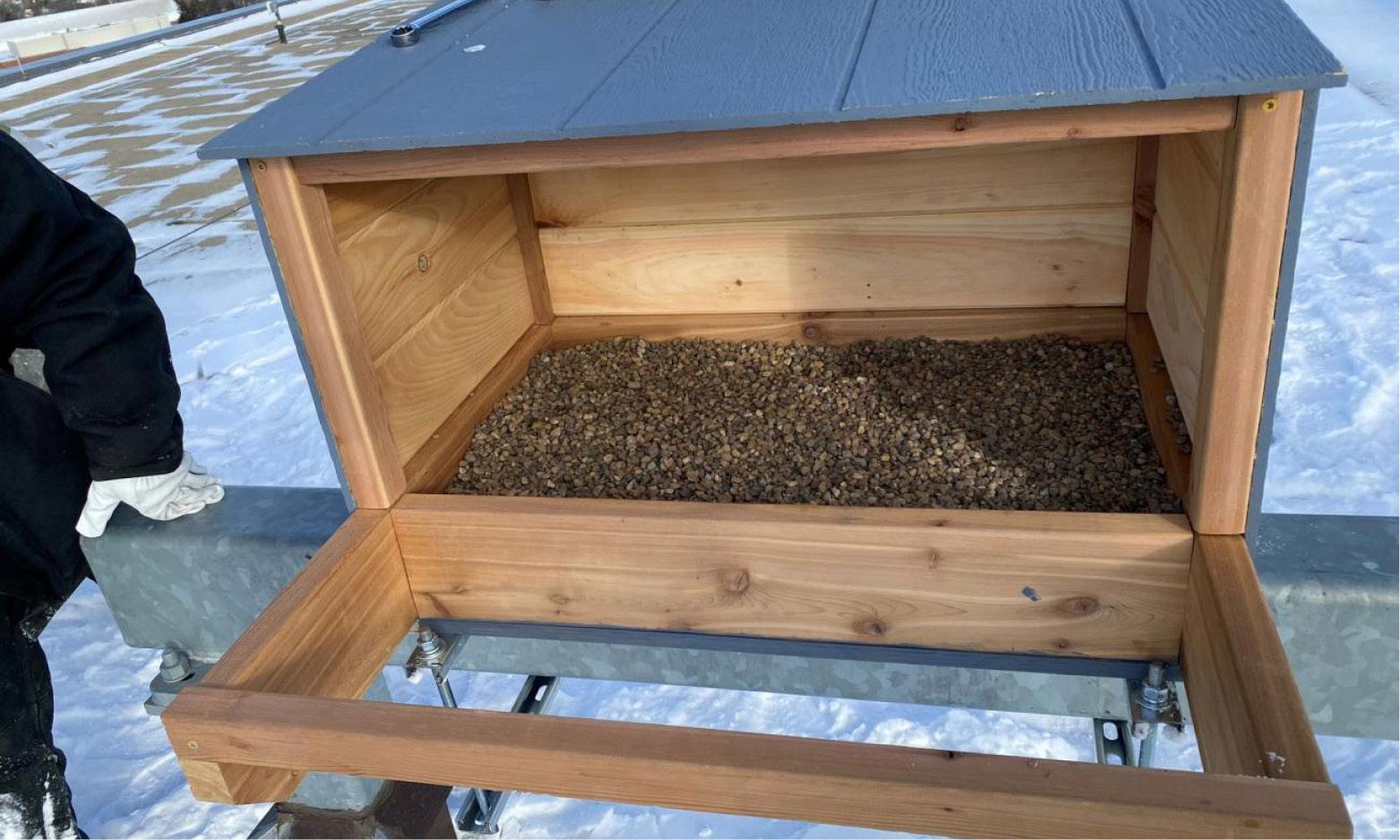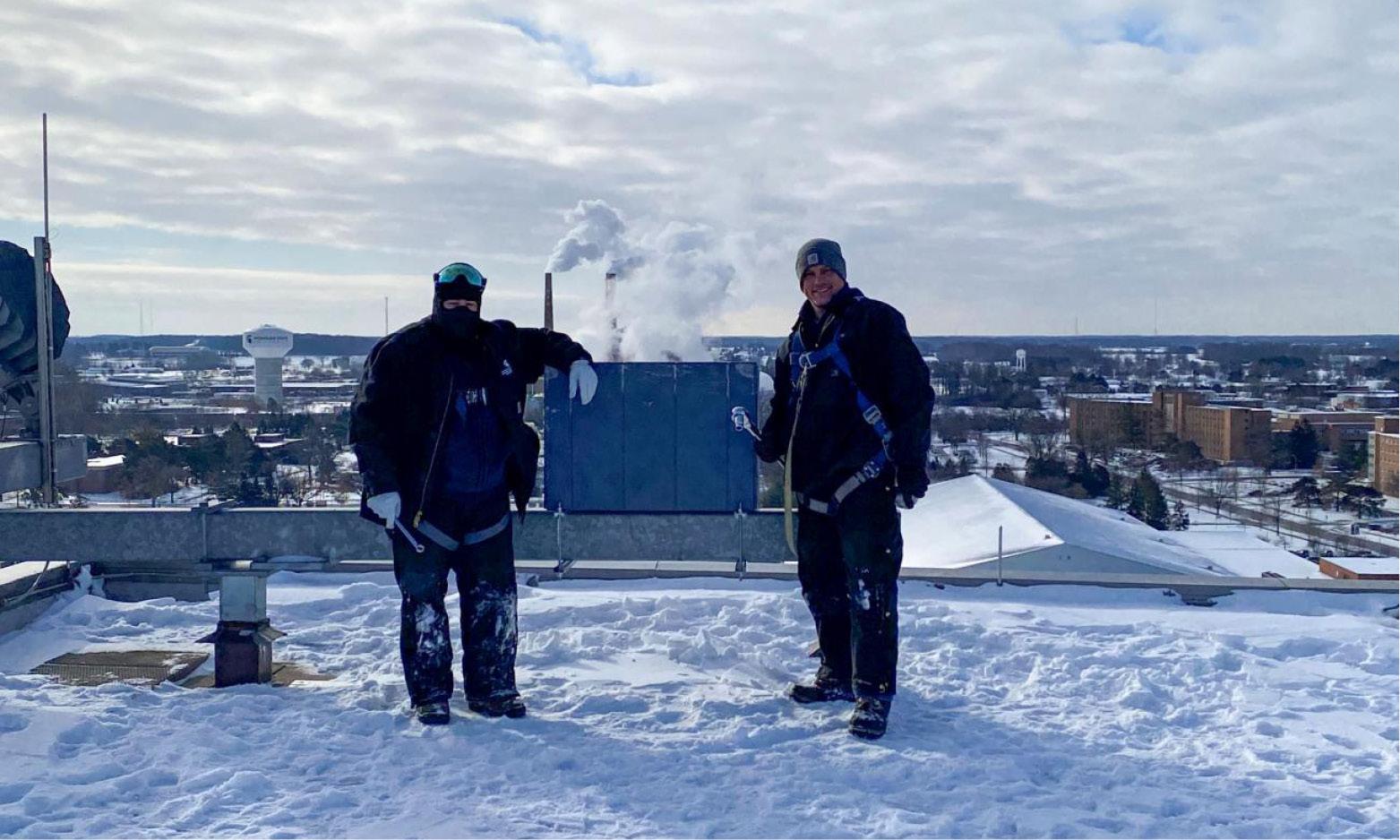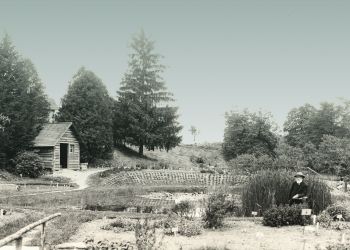Egg Watch
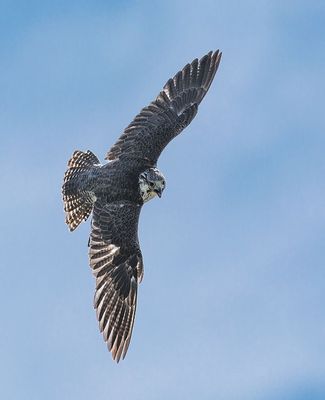
Egg Watch
March 30, 2022A recently installed nesting box on top of Spartan Stadium has become the penthouse suite for a pair of peregrine falcons.
Peregrine falcons were once endangered nationally. Although the species is not in critical condition anymore, they remain under an endangered status in Michigan.
The falcons have been spotted around Michigan State University’s football stadium for about five years, but a nest had never been found on campus until now.
Thanks to the work of a devoted group of undergraduate students in the MSU Fisheries and Wildlife Club, that nest is now a reality. With a high-definition surveillance camera and a live feed, it’s kind of like a feathery reality tv show.
With help from the university's Department of Infrastructure, Planning and Facilities, the box went up on the stadium's southwest corner in January.
MSU Fisheries and Wildlife Club President Molly Engelman says mating behavior has been observed, and the birds seem to be building a nest, with one egg laid and hopefully more to come.
Engelman added that safety for the pair isn’t a big concern, even on football Saturdays.
“The fact that they have the nest probably wouldn’t change much of their behavior come fall,” she explained.
"Because if they do produce offspring and have babies this spring, the babies will have grown up and fledged from the nest by that point.”
Egg Watch—Spartan Stadium Falcon Cam
What’s In the Box?
The box, installed by IPF's Ray Dancer, Matt Vohwinkle and Jake Hengstebeck, is made of pine and contains only a few inches of pea gravel at the bottom.
It seems a bit sparse for a nest, but Evan Griffis, junior fisheries and wildlife major, and Fisheries and Wildlife Club chair, explained the reasoning behind the construction.
"Peregrine falcons are cliff nesters," he said. "They make what's called a scrape, where they sit on a gravel substrate, kick with their feet a little bit, and make a depression in the gravel. That's where they lay their eggs. It's pretty unique."
Help Maintain the Nest Box
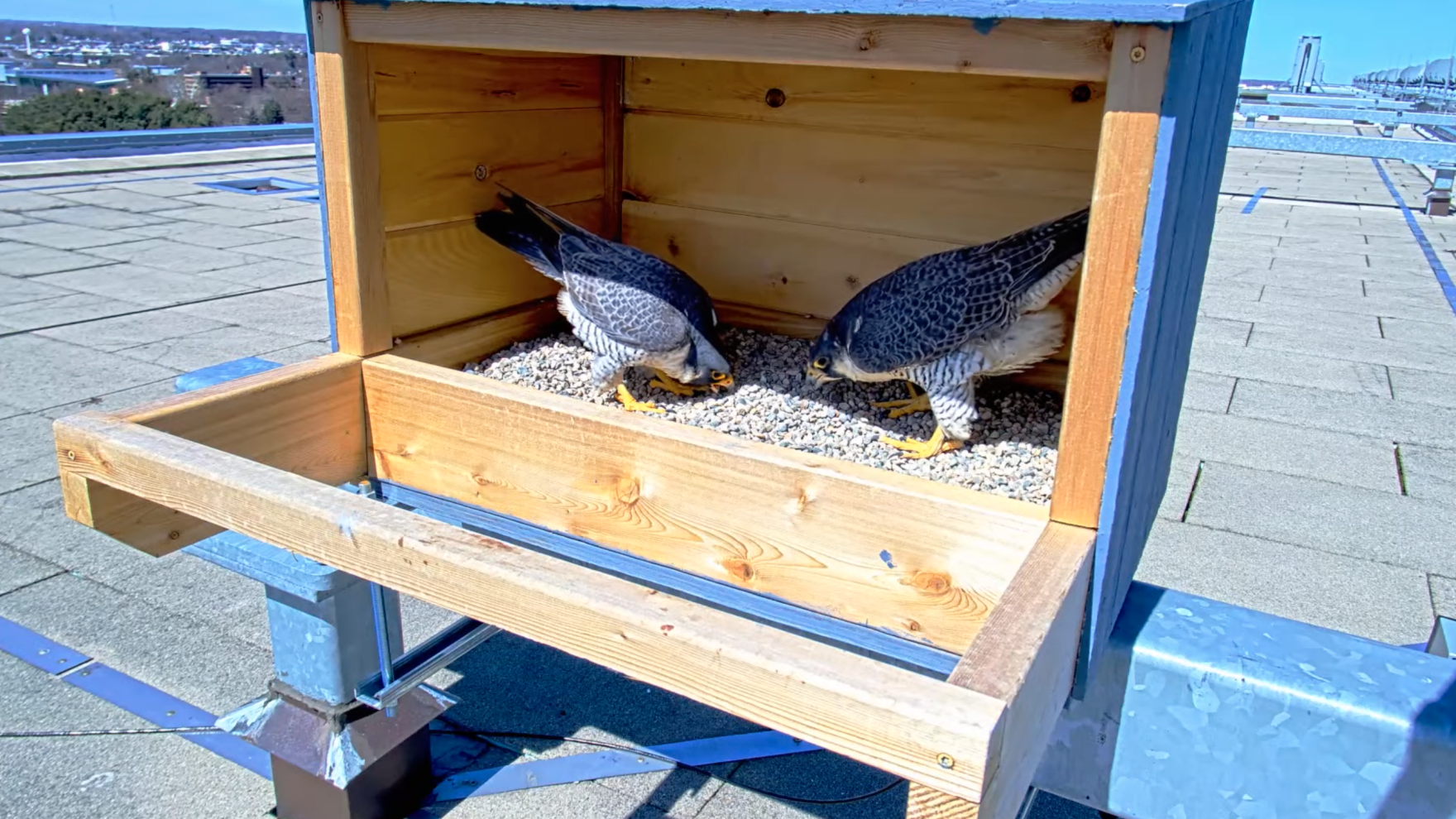
Make a gift to help keep the lights on in the peregrine suite and support student research.
Author: Alex Gillespie, '17
Contributing Writer(s): Scott Pohl, Danielle Fowler


